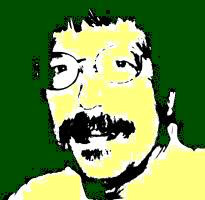I've been looking for a brief introductory statement of the Five Laws and have decided to do it myself. In this post I will use the terms "book" and "reader" in a generalized sense that should be taken as a reference to any media in any format. "Use" can be taken to include writing and presenting as well as reading and, more importantly, the thinking and learning that emerges from the read-write loop. I am also taking the liberty to include some of my personal reflections on the concepts and principles.
Books are for use
Ranganathan contrasts "books for use" against "books for keeping." If our work is a matter of keeping, then just having the dead objects becomes our main purpose. But in the case of use, then the contents of those objects become alive in the hands and minds of our readers. And our purpose in libraries becomes the bringing together of collections of books, communities of readers and authors, needs for learning in those communities, and the betterment of the institutions and communities in which we work.
Every person his or her book
Whether we say person or reader here might not matter, but part of Ranganathan's philosophy prompts us to see our readers as individual human beings with their own interests and needs. Our obligation is to treat and think of our readers with respect and as having the right to come to us for the book or books that will suit their needs. We should also look to providing broad access and the amenities that would welcome readers to come and use their books.
Every book its reader
This is mainly a maxim for collection management. Why should we keep any one book? Because of its evident usefulness to one or more readers. This also gives direction to how we build and design indexes, search engines and results lists. The challenge with internet resources becomes how to bring forward the most likely useful books and to push the others to the third and fourth pages of results.
Save the time of the reader
This is quite simply a matter of convenience and quality customer service. Any task that can be made easier should be easy. This will give the reader time and energy to devote to tasks that have to be hard, like learning how to read scholarly articles.
A library is a growing organism
"Organism" is an obvious metaphor to indicate the complex systems and vitality presented by a library. "Ecosystem" would probably be used today. In either case, a library arises from multiple and varied systems and sub-systems, and is capable adapting to new conditions and developing new functions as needed. A library can easily grow in size, but more importantly, can grow in the sense of learning as an organization to better serve its readers.
—from Five Laws of Library Science by S. R. Ranganathan, 1931





